Time Out of Mind
Cast & Crew
Robert Siodmak
Phyllis Calvert
Robert Hutton
Ella Raines
Eddie Albert
Leo G. Carroll
Film Details
Technical Specs

Synopsis
In New England, in July 1889, Kate Fernald, the daughter of the Fortune family's housekeeper, recalls the day that the clipper ship Rainbow brought Christopher Fortune home from his first voyage: Although the Fortunes have always been sailing men, young Chris was born without a trace of salt water in his blood, thus bringing great disappointment to his stern father, Captain Fortune. Chris returns in a coma after suffering an accident aboard ship, but his father refuses to acknowledge his son's grave condition and insists on holding the traditional party to welcome a returning ship. Her father's decision infuriates Clarissa "Rissa" Fortune, Chris' overly devoted sister. As soon as he regains consciousness, Chris, an aspiring composer, is drawn to his beloved piano. Although Chris yearns to study music in Paris, his rigid father insists he return to sea at the end of the month. Rissa accuses her father of destroying her mother with his iron will and begs him to allow Chris to go to Paris, but he refuses. Rissa then travels to Boston to ask her aunt Melinda for the money to fund Chris's Paris studies. After Rissa leaves, Chris tells Kate that he likens sailing to death. Later, Rissa returns home from Boston empty-handed. On the eve before the sailing of the Rainbow , Melinda comes to the Fortune home to celebrate Thanksgiving and is accompanied by Dora Drake, the daughter of a wealthy Boston businessman. Kate, meanwhile, pleads with Jake Bullard, a supercilious fisherman, to lend Chris $2,000 to go to Paris. Jake, who holds Chris in contempt for foresaking the sea, at first refuses, but later relents and gives Chris the money while taunting him for hiding behind a woman's skirts. At dinner that night, the captain becomes infuriated when he learns that Rissa tried to borrow money from Melinda by using the pretense that the family needed funds to pay their insurance costs. At Kate's urging, Rissa and Chris leave immediately for Paris without informing their father. When the captain discovers what has transpired, he accuses Kate of betrayal. Three long years pass in which the captain withers in silence, even burning his children's letters. As he languishes near death, the captain receives a telegraph notifying him of the wreck of the Rainbow . With nothing left to live for, he perishes, alone. The following winter, Rissa and Chris return home and Kate is shattered when she learns that Chris has married Dora. The spoiled Dora treats Kate like a servant and later has her rich father rent a concert hall for the New York debut of Chris's new composition. Chris, who believes he has not lived up to his potential, admits to Kate that his concert is simply a rehash of one of Debussy's pieces. Feeling that he has become the pampered puppet of a rich man's daughter, Chris drowns his disappointments in alcohol. On the night of his debut, Chris gets drunk, pounds out nursery rhymes on the piano and then struts off stage, leaving the audience thunderstruck. When music reviewer Max Lieberman savages Chris's conduct, Dora, humiliated, callously announces that she is leaving her husband. Some time later, a drunken Chris seeks refuge at the Fortune house, where a solitary Kate is taking inventory of household items for auction. Upon learning that Kate has been buying large amounts of alcohol, Jake comes to the house. When he witnesses a drunken Chris slap and push Kate, Jake slugs Chris. After Jake leaves, Kate expresses her love for Chris and her abiding faith in his talent. Later that night, Chris, inspired by the ocean waves pounding against the rocks, tentatively begins to play the piano. Slowly regaining his confidence, Chris stops drinking and completes a new piece, the New England Symphony . With the help of Max's driver Mike, Kate plants Chris's new composition in Max's carriage. Recognizing the quality of the work, Max arranges for a performance at the concert hall. One day, Rissa appears at the house, jealously accuses Kate of trying to isolate Chris and then storms out. On the night of his symphony's debut, Chris declares his love for Kate and slips a ring on her finger. Having spotted Dora and Rissa seated in a box in the concert hall, Max warns Kate that Dora has employed some thugs to disrupt the concert. As Chris conducts his moving composition, Kate proceeds to the box and prevents Dora from signaling for the disruption. After Dora retreats, Rissa and Kate join hands to the strains of Chris's music.

Director
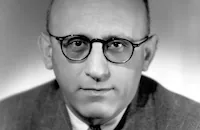
Robert Siodmak
Cast

Phyllis Calvert

Robert Hutton

Ella Raines

Eddie Albert

Leo G. Carroll
Helena Carter

John Abbott
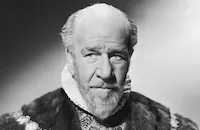
Henry Stephenson

Olive Blakeney
Harry Shannon
Janet Shaw
Emil Rameau
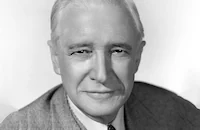
Samuel S. Hinds
Lilian Fontaine
Houseley Stevenson
Maudie Prickett
William Frambes
Ethan Laidlaw
Michael Stokey
James Farley

Lloyd Ingraham
Beatrice Roberts
Patricia Alphin
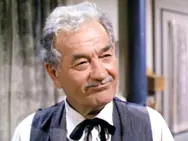
Milburn Stone
Lane Watson
John Harmon
William Halligan
Renee Carson
Charles Wagenheim
John Piffle
Elspeth Dudgeon
Guy L. Beach
Al Murphy
Pietro Sosso
Paul Scardon
Charles Jordan
Jack George
Jerry Jerome
Ernie Adams
Jack Cheatham
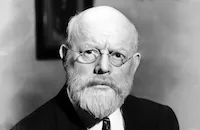
Howard Mitchell
Millard Sherwood
Lee Shumway
Watson Downs
Crew
Travis Banton
Mario Castelnuovo-tedesco
John F. De Cuir
Carmen Dirigo
Charles Felstead
Abem Finkel
Fred Frank
Russell A. Gausman
Maury Gertsman
Bernard Herzbrun
David S. Horsley
Ray L. Jeffers
Ted J. Kent
Joe Lapis
Arnold Phillips
Jack Pierce
Miklos Rozsa
James Sample
Robert Siodmak

Film Details
Technical Specs

Articles
Eddie Albert (1906-2005)
The son of a real estate agent, Albert was born Edward Albert Heimberger in Rock Island, Ill., on April 22, 1906. His family relocated to Minneapolis when he was still an infant. Long entralled by theatre, he studied drama at the University of Minnesota. After years of developing his acting chops in touring companies, summer stock and a stint with a Mexican circus, he signed a contract with Warner Bros. and made his film debut in Brother Rat (1938). Although hardly a stellar early film career, he made some pleasant B-pictures, playing slap happy youths in Brother Rat and a Baby (1940), and The Wagons Roll at Night (1941).
His career was interrupted for military service for World War II, and after his stint (1942-45), he came back and developed a stronger, more mature screen image: Smash-Up: The Story of a Woman (1947); Carrie (1952); his Oscar® nominated turn as the Bohemian photographer friend of Gregory Peck in Roman Holiday (1953); a charming Ali Hakim in Oklahoma (1955); and to many critics, his finest hour as an actor, when he was cast unnervingly against type as a cowardly military officer whose lack of commitment to his troops results in their deaths in Attack! (1956).
As he settled into middle-age, Albert discovered belated fame when he made the move to Hooterville. For six seasons (1965-71), television viewers loved Eddie Albert as Oliver Wendal Douglas, the bemused city slicker who, along with his charming wife Lisa (Eva Gabor), takes a chance on buying a farm in the country and dealing with all the strange characters that come along their way. Of course, I'm talking about Green Acres. If he did nothing else, Alberts proved he could be a stalwart straight man in the most inane situations, and pull it off with grace.
After the run of Green Acres, Albert found two of his best roles in the late stages of his career that once again cast him against his genial, good-natured persona: the fiercly overprotective father of Cybill Shepherd in The Heartbreak Kid (1972), for which he earned his second Oscar® nomination; and the sadistic warden in Robert Aldrich's raucous gridiron comedy The Longest Yard (1974). Soon, Albert was in demand again, and he had another hit series, playing a retired police officer who partners with a retired con artist (Robert Wagner) to form a detective agency in Switch (1975-78).
The good roles slowed down slightly by the dawn of the '80s, both film: The Concorde: Airport '79 (1979), How to Beat the High Co$t of Living (1980), Take This Job and Shove It (1981); and television: Highway to Heaven, Murder, She Wrote, Thirtysomething, offered him little in the way of expansion. Yet, Albert spent his golden years in a most admirable fashion, he became something of activist for world health and pollution issues throughout the latter stages of his life. It is widely acknowledged that International Earth Day (April 22) is honored on his birthday for his tireless work on environemental matters. Albert was married to famed hispanic actress Margo (1945-85) until her death, and is survived by his son, actor Edward Albert, a daughter, and two granddaughters.
by Michael T. Toole

Eddie Albert (1906-2005)
Quotes
Trivia
Notes
The film's title card reads "Rachel Field's Time Out of Mind." The film opens with offscreen narration spoken by the character "Kate Fernald" describing the return of "Chris Fortune" from his first sea voyage. Hollywood Reporter news items yield the following information about the production: In April 1945, veteran screenwriter Jane Murfin chose Fields's novel for her first producing effort at Universal. In November 1946, after nine months of preparation, however, Murfin resigned from the project. According to an October 1946 news item, Siodmak, who was signed to direct the film in mid-September 1946, bowed out of the production to take a vacation and rest. Frank Ryan was then assigned to direct the film, but because the start of production was delayed until November 1946, Siodmak decided to return as director/producer. Although a September 1946 news item places Ann Blyth in the cast, she was not in the film. Studio publicity items add that January Jacobson coached Robert Hutton in the piano playing sequences. This picture marked the American film debut of British actress Phyllis Calvert.














